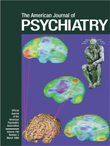Treatment of Tourette’s Syndrome With Delta-9-Tetrahydrocannabinol
Mr. A, a 25-year-old man, was diagnosed with attention deficit hyperactivity disorder at age 6. Motor and vocal tics started at age 10. During adolescence, he developed obsessive-compulsive behavior, anxiety, lack of impulse control, and self-injurious behavior. The diagnosis of Tourette’s syndrome according to DSM-IV criteria was made at age 22. At age 19, he started smoking marijuana. When using 2–3 g/day, he noted a marked improvement of both vocal and motor tics and associated behavioral disorders. Therefore, he stopped less effective medical treatment with pimozide.In an uncontrolled open clinical trial, we investigated whether Δ9-THC is effective in the therapy of Tourette’s syndrome. Written informed consent was obtained from the patient after complete description of the study. The local ethics committee approved the study.Mr. A was treated once with 10 mg of Δ9-THC. (He was unmedicated and had stopped smoking marijuana 3 days before.) Using the section on tic symptoms of the Tourette’s Syndrome Global Scale, we found that Mr. A’s total tic severity score was 41 before treatment and was reduced to 7 just 2 hours after treatment. Both motor and vocal tics improved and coprolalia disappeared. The improvement began 30 minutes after treatment and lasted for about 7 hours; no adverse effects occurred. To measure cognitive functions, we performed neuropsychological tests, which showed improved signal detection and sustained attention and reaction time after treatment. Mr. A himself noted an improvement of motor and vocal tics of about 70%. Furthermore, he felt an amelioration in attention, impulse control, obsessive-compulsive behavior, and premonitory feeling.
References
Information & Authors
Information
Published In
History
Authors
Metrics & Citations
Metrics
Citations
Export Citations
If you have the appropriate software installed, you can download article citation data to the citation manager of your choice. Simply select your manager software from the list below and click Download.
For more information or tips please see 'Downloading to a citation manager' in the Help menu.
View Options
View options
PDF/EPUB
View PDF/EPUBGet Access
Login options
Already a subscriber? Access your subscription through your login credentials or your institution for full access to this article.
Personal login Institutional Login Open Athens loginNot a subscriber?
PsychiatryOnline subscription options offer access to the DSM-5-TR® library, books, journals, CME, and patient resources. This all-in-one virtual library provides psychiatrists and mental health professionals with key resources for diagnosis, treatment, research, and professional development.
Need more help? PsychiatryOnline Customer Service may be reached by emailing [email protected] or by calling 800-368-5777 (in the U.S.) or 703-907-7322 (outside the U.S.).

